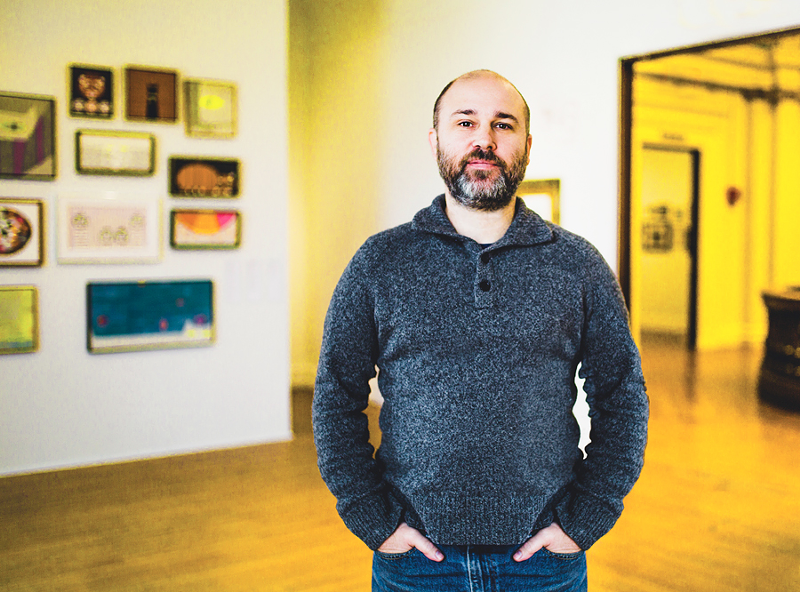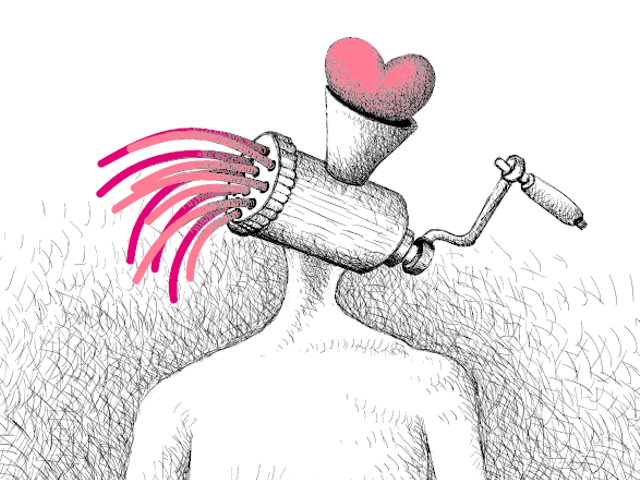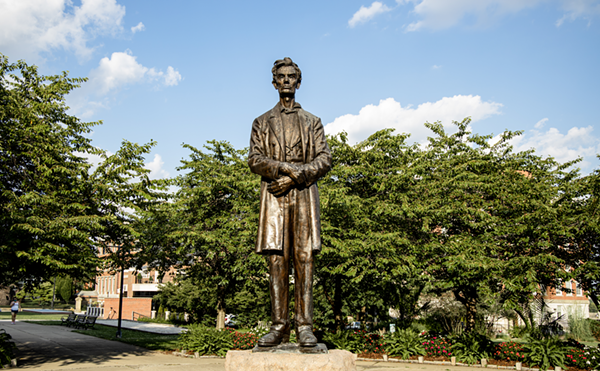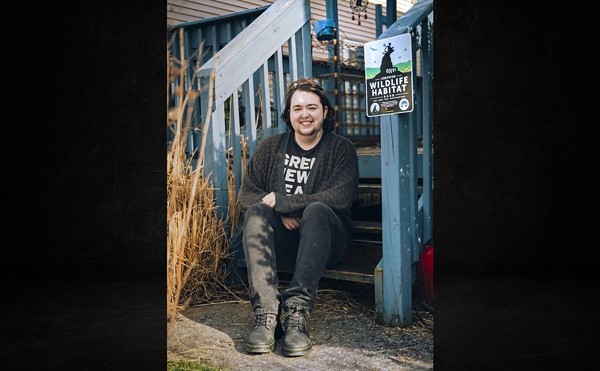Hometown: Cincinnati
Why we love him: For his ongoing cultivation of the local art scene and for representing Cincinnati to the larger art world in ways that make us proud to be Midwestern
Matt Distel has long been a champion of the local art scene. After graduating from Miami University in 1994 with a degree in art history, Distel began organizing shows around Cincinnati. Along with artist Kristin Rogers, he ran a gallery in Camp Washington called DiLeia Contemporary from 1994-2000.
During that time, Distel put on the kind of shows we have now come to expect from the local DIY art scene: ephemeral one-off events like pot lucks, performances, slumber parties and the kind of happenings that tend to organically develop around artists who are low on financial resources, yet rich in inspiration and can-do-it resourcefulness.
In the intervening years, Distel has served as curator for nearly all the major art institutions in town: the Contemporary Arts Center, Cincinnati Art Museum, Weston Art Gallery and The Carnegie. But he has also run his own galleries (the aforementioned DiLeia and Country Club), as well as community-driven nonprofits like Visionaries + Voices.
Despite the inherent pretentiousness of administrative positions in the art world, what’s most striking about Distel’s practice as a curator is that he shirks any kind of ego-driven posturing. Instead, he demonstrates the kinds of qualities that Midwestern creatives have developed a reputation for and makes them so coveted by employers on either coast: a generous work ethic coupled with a sardonic humility.
Fortunately for Cincinnati, Distel has several reasons to stay in town. He currently serves as exhibitions director for The Carnegie in Covington, and in 2014 he opened The Littlefield, a bourbon bar and restaurant, with three of his friends in his home neighborhood of Northside. They’ve also recently opened up a sports-themed bar right next door to The Littlefield called, appropriately, Second Place.
Though he is a busy guy (he initially asked if he could respond to this Q&A with predictive texting technology on his phone), Distel answered our questions about all things passion-related and why he thinks he’s “doing it wrong.”
CityBeat: What aspects do you love about your job?
Matt Distel: It is always working with artists and other curators. The collaborative, communal nature of the work is what I love most. Being around people engaged in ideas and figuring out how to bring those into the physical world is pretty exciting. I feel grateful to be able to go into work and help someone realize a project that at one point only existed as a thought in their brain. Playing a small role in that process is thrilling.
CB: How do you define passion?
MD: Oh, I don’t know. I probably do it wrong.
CB: How is passion different from love?
MD: Is it? I mean, they go hand-in-hand so often. I guess passion, in my telling, bends toward obsession. I’m passionate about some sports things, some TV and film stuff, various artists. Maybe I am conflating passion with consumption. See? I’m doing it wrong.
CB: What are you most passionate about?
MD: Having clearly established that I’ve not given much thought to passion, I am passionate about my family and friends, football (soccer), my work and whatever the person next to me can convince me of.
CB: It’s Friday night after a long week. Where would you love to be?
MD: Like any rational person, at home. With my wife. And a bourbon.
CB: What do you love about Cincinnati?
MD: Cincinnati has always been a town where you can get things done. Visual art is maybe not as strongly supported by collectors as it is in other towns, but artists can make things happen. Artist-run spaces are always popping up and cycling through periods of incredible creativity. Cincinnati and Northern Kentucky allow motivated artists to start something and maintain it just on passion and hard work for many years. Getting to that next step of making these projects sustainable over decades and generations is the trick.
CB: What’s the best lesson life has taught you about love?
MD: The other day I said, “I’m tired of learning experiences. When do I get to just know stuff?” I guess that never really happens. This past year has taught me to be around the people you love as much as you possibly can.






